The power of (well-known) trademarks, the reputation of a French brand and its advantage in a French court
Foto: Steven Binotto (Unsplash)
Various newspapers and websites (e.g. here, here and here) have reported on the legal battle between the French company Automobiles Citroën and the Swedish Polestar (a Volvo brand). The first model of the relatively new Polestar brand – the Polestar 1 – was introduced in 2019, a hybrid sports car (see image below / source images: L’AutomobileMagazine). The Polestar 2 has now been introduced as well. Unlike the Polestar 1, this is a fully electric (family) car. The cars have been introduced and delivered in the Netherlands since August/September 2020. The reviews are promising and the Polestar 2 is generally rated even better than its major competitor and pioneer in the field of electric driving, Tesla.
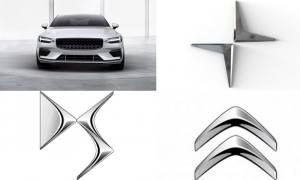
Top right: Polestar logo
Both logos below: Citroën-logos
Trademark rights Citroën
Citroën brought the case before Tribunal Judiciaire de Paris on the basis of its three French trademark registrations for the following logos, registered for (inter alia) cars:
- Number 3422762 / registration date 12 April 2006:
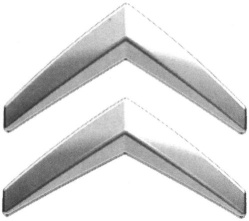
- Number 3841054 / registration date 23 June 2011:
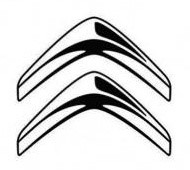
- Number 4176913 / registration date 28 April 2015:
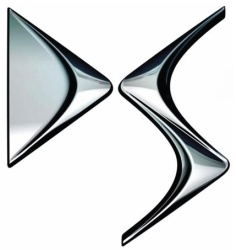
Consequently, Citroën’s trademark registrations can prevent the use by competitors in France of identical logos and of logos which are similar, provided that they are used for identical and/or similar products. The latter is not difficult to prove in this particular case: Polestar uses its logo for cars, i.e. identical products. That leaves the comparison of the logos themselves. Like Citroën, Polestar has registered its logo as well, not only in France, but in all EU countries:
- Number 016896532 / registration date 4 October 2017:
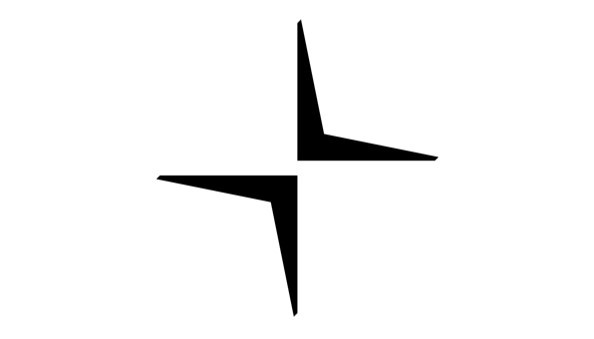
- Number 016898173 / registration date 22 June 2017:
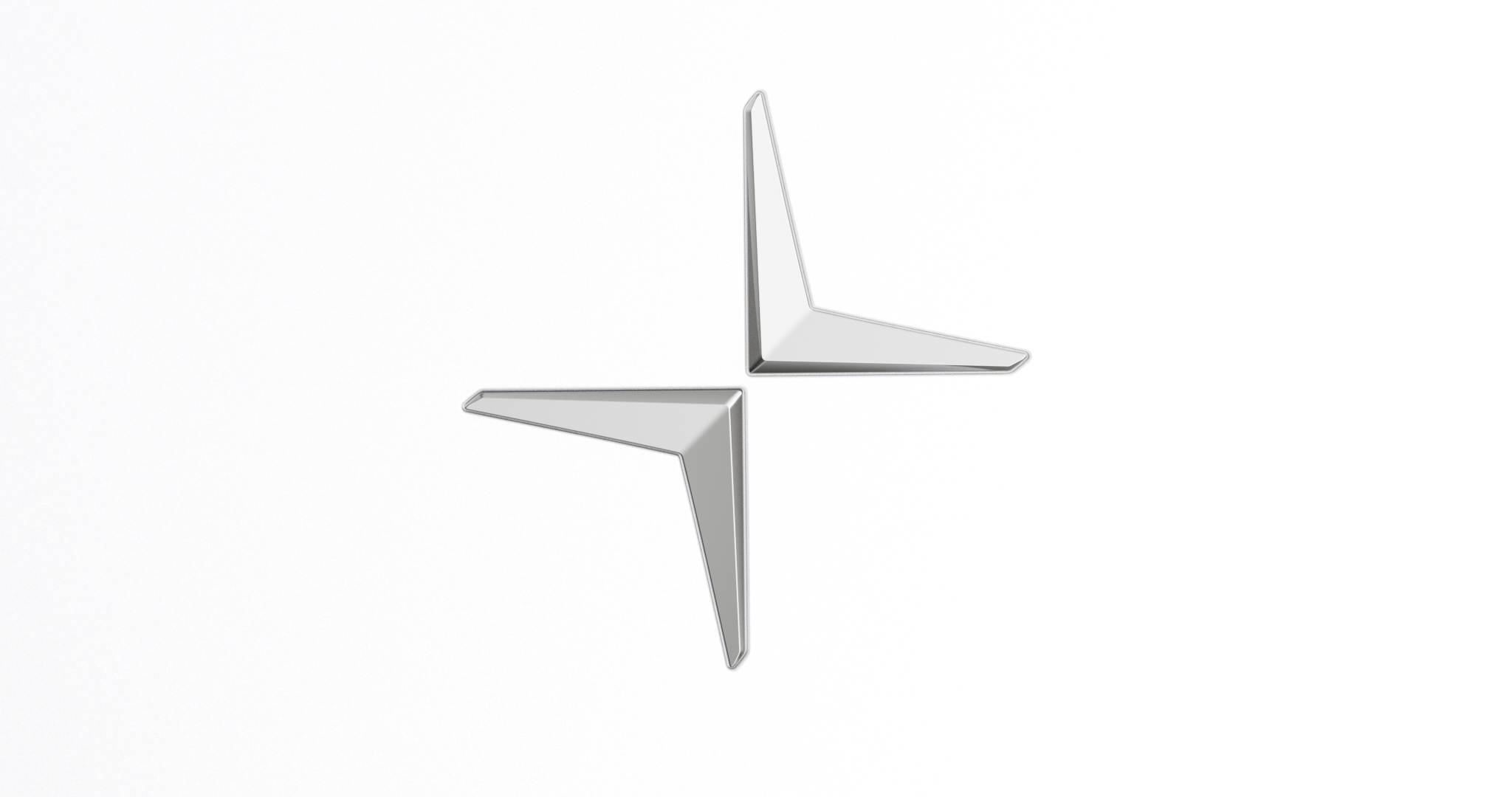
French legal proceedings
Before the French court, Citroën had more luck. Citroën argued that the Polestar logos are very similar to its own. Visually, but also conceptually, the logos are very similar. The Citroën logo consists of two chevrons that fit together, while the two parts of the so-called chevron of the Polestar logo are placed on top of each other. The products offered with both competing logos – cars – are of course identical. Use of corresponding logos for identical products means that there is a risk of confusion among the relevant public. That public might think that Citroën and Polestar are economically linked, according to Citroën. Polestar – of course – does not agree. The logos do not resemble at all; Polestar’s logo reflects the ‘polestar’ while the relevant public, the car buying consumer and car salesman, is attentive enough not to link the brands.
Famous brand? Greater protection
On the basis of a trademark with a reputation, the proprietor of that trademark may take action against identical and similar marks for similar and non-similar products or services if use thereof takes unfair advantage of, or is detrimental to, the distinctive character or the repute of the trademark with the reputation. Being the proprietor of a trademark with a reputation, one has broader protection than the proprietor of an ‘ordinary’ trademark.
In determining whether a trademark is well-known, account must be taken of all the relevant circumstances, such as, in particular, the market share of the trademark, the intensity, geographical extent and duration of its use, and the extent of the investment made by the undertaking to publicise it, in accordance with the 1999 standard judgment of the EU Court of Justice in this field: The stronger the earlier mark’s distinctive character and reputation, the easier it will be to accept that detriment has been caused to it. There must be a certain degree of similarity between the trademark with the reputation and the trademark that is under attack, so that the relevant public establishes a link. This will more easily be the case than with the condition of likelihood of confusion, which is the criterion in the case of regular (not well-known) trademarks. Infringement will thus, in general, be accepted more easily in cases involving a trademark with a reputation than in cases involving a genuine trademark. And that is also what Polestar faced in the conflict with Citroën.
French company, French reputation, French protection
According to the court in Paris, the resemblance between the Citroën and Polestar logos is rather weak. However, the logos of the company Citroën, which exists for more than 100 years, are well-known in France. The 2CV is one of the best-selling cars. The Citroën cars are praised by the French court for their “advanced technology”. Citroëns have been widely used in films and every President of the French Republic since René Coty (French President from 1954 – 1959) has driven a Citroën (in the more expensive segment). In short: Citroën is part of the French history and culture. The French car brand is qualified as “exceptionelle” (still, according to the French court). Of course, a Swedish newcomer cannot compete with that.
The French Citroën logo has become very distinctive due to its longstanding and frequent use. In addition, the products of both car brands are identical (cars) and Polestar unmistakably also uses a chevron logo (although the two parts are positioned differently), according to the Court. Several websites refer to this and apparently link the Polestar logo to Citroën’s chevron, for example:” j’aime bien les chevrons Citroën du logo Polestar” (translation: “I really like the chevrons of Citroën in the Polestar logo”) (website: www.leblogauto.com). According to the French court, Polestar takes unfair advantage of the well-known Citroën logo and that is not permitted. In the French court decision of 4 June 2020 [1] Polestar has been ordered to pay a compensation of EUR 150,000 and has temporarily been banned from using the Polestar logo in France, which will take effect three months after the ruling and will remain in force for six months. Until the beginning of March 2021, Polestar will therefore not be allowed to sell cars under the Polestar logo in France, whereas the cars were due to be delivered there at the beginning of 2021. In the meantime, access to the Polestar website has been blocked for French visitors.
Á la fin
A fair verdict? In my opinion, no. Like Polestar, I really do not think that the logos are sufficiently similar and at no point did I make the link with Citroën. But, of course, I do not belong to the French people who grew up with the Citroën ‘chevrons’ either. I am curious to see how large Polestar’s market share in France will be once the ban has expired. The Polestar brand has a reputation already. In any case, I look forward to the end of the year, when I will be one of the lucky (Dutch) Polestar owners. Who knows, maybe I will take it for a ride to France…

In the practical handbooks for entrepreneurs ‘IE in Bedrijf’ (IP in Business) one can read all about brands and infringement, with numerous practical examples. Part 1, IP in Business – Trademarks and trad names and part 6, IP in Business – Infringement of IP rights, handle the infringing use of trademarks and what trademark owners van do against it, but also what options there are to defend yourself against claims. The series is for sale at regular and online bookshops (for example: managementboek.nl) both in hard cover and eBook. For a (free) downloadable copy, please visit IP in Business.

